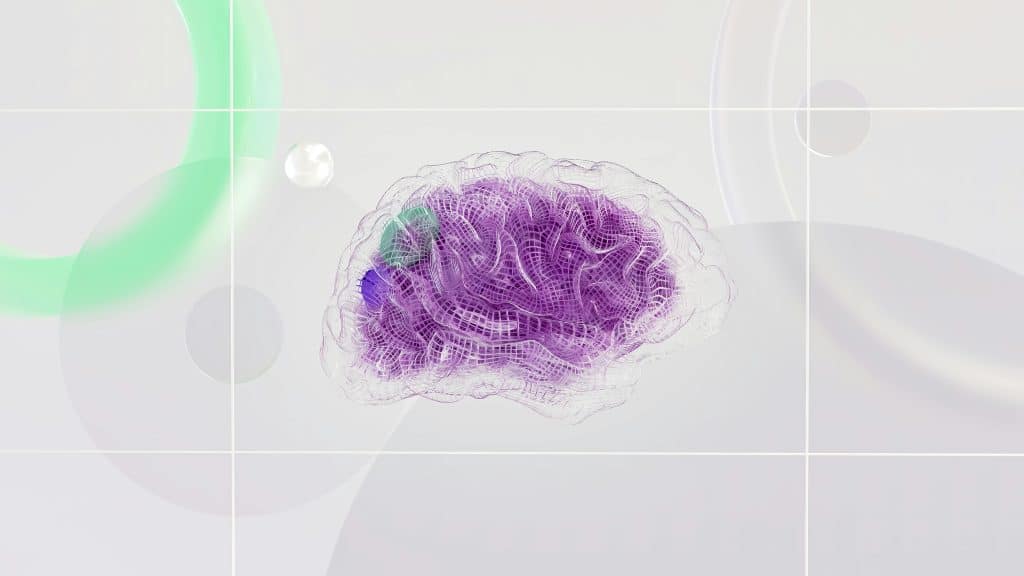In today’s digital age, staying focused is increasingly difficult. Whether it’s the constant pull of social media, the temptation to check your email, or the multiple tasks demanding your attention, staying on one task seems nearly impossible at times. In fact, research has shown that the average worker is interrupted every three minutes (McMillan, 2019), making it a challenge to focus deeply for extended periods. But what if you could train your brain to ignore distractions and enhance your ability to concentrate? The science of focus shows us that focus isn’t just a trait you’re born with but a skill that can be developed. This article will explore the science behind focus, why it’s hard to stay focused, and most importantly, how you can train your brain to stay on task.

Understanding Focus: The Brain’s Mechanism
Focus is a mental skill that involves directing and sustaining attention on a specific task. It’s controlled by the prefrontal cortex, the part of the brain responsible for higher-level functions like decision-making, planning, and concentration. But while the prefrontal cortex is at the heart of focus, maintaining it requires the coordination of several brain regions working together.
When you’re focused, your brain filters out irrelevant stimuli and helps you remain engaged with the task. This ability to maintain focus is vital for productivity and completing goals. However, in a world filled with distractions, the ability to stay focused for extended periods becomes more challenging.
Why Staying Focused is Hard
Several factors contribute to the difficulty of staying focused, especially in today’s digital world. Here are a few key reasons:
- Digital Distractions: The rise of smartphones and social media has made constant distraction the norm. Every ping, notification, and alert sends dopamine through our system, a neurotransmitter linked to pleasure and reward. This makes it harder to ignore distractions and focus on a single task.
- Multitasking: Many believe that multitasking makes us more efficient, but studies show the opposite. When we try to juggle multiple tasks at once, our brain is constantly switching between them. Instead of performing multiple tasks at the same time, we’re rapidly changing gears, which reduces efficiency and accuracy. In fact, studies have found that multitasking can reduce productivity by up to 40% (Rubinstein, Meyer, & Evans, 2001).
- Cognitive Overload: Focusing on one task for too long can lead to cognitive overload, where the brain becomes fatigued, making it difficult to maintain attention. Cognitive fatigue is often the result of long hours of continuous work without breaks.
- Sleep Deprivation: Sleep plays a crucial role in brain function, including focus. Lack of sleep impairs cognitive abilities, including memory and attention, making it harder to filter out distractions (Walker, 2017).
Neuroplasticity: Your Brain’s Ability to Change
The good news is that focus is not a fixed trait. Neuroplasticity, or the brain’s ability to reorganize itself by forming new neural connections, shows that focus can be trained and improved over time. This means that just like you can strengthen your muscles through exercise, you can also strengthen your ability to focus through practice.
When you actively engage in tasks that require concentration, your brain strengthens the neural pathways that help you maintain attention. With consistent practice, your brain becomes more efficient at sustaining focus, making it easier to stay on task and ignore distractions.
How to Train Your Brain to Stay Focused
There are several methods you can use to train your brain to stay on task and improve your focus. These methods are grounded in neuroscience and can be integrated into your daily routine to enhance attention and productivity.
Mindfulness and Meditation
One of the most effective techniques for improving focus is mindfulness. Mindfulness exercises, such as meditation, train your brain to be present in the moment and reduce the tendency to be distracted by external stimuli. Research has shown that practicing mindfulness regularly can increase the size of the prefrontal cortex, the area of the brain responsible for focus and decision-making (Zeidan et al., 2010).
Mindfulness also helps to reduce stress, which can interfere with focus. A study published in Psychological Science found that even brief mindfulness meditation can improve attention and cognitive flexibility.
How to Practice Mindfulness:
- Start with just 5-10 minutes of deep breathing or guided meditation each day.
- Focus on your breath or an object in your environment.
- When your mind wanders, gently bring your focus back to the task at hand.
The more you practice mindfulness, the easier it becomes to focus during work or tasks that require sustained attention.
The Pomodoro Technique: Work in Short Bursts
The Pomodoro Technique is a popular time-management method that encourages working in short, focused bursts. The method involves working for 25 minutes and then taking a 5-minute break. After completing four cycles, you take a longer break (15-30 minutes).
This technique leverages the brain’s ability to focus in short intervals, preventing mental fatigue and improving productivity. Research has shown that taking regular breaks can help maintain concentration and prevent burnout (Cirillo, 2018).
How to Use the Pomodoro Technique:
- Set a timer for 25 minutes and focus solely on one task.
- Once the timer goes off, take a 5-minute break (stretch, hydrate, or relax).
- After completing four sessions, take a longer break of 15-30 minutes.
This structured approach helps maintain focus while providing the necessary breaks to refresh your mind.
Exercise: Enhance Focus with Physical Activity
Physical exercise is not only good for your body but also your brain. Research has shown that regular cardiovascular exercise can increase blood flow to the brain, boosting cognitive functions like focus, memory, and learning (Ratey, 2008).
Exercise also reduces stress, which is a major barrier to focus. Studies suggest that even a 10-minute walk can increase mental clarity and concentration.
How to Incorporate Exercise:
- Aim for at least 30 minutes of moderate exercise a few times a week.
- Use breaks during your workday to take a quick walk or do light stretches.
- Try morning workouts to kickstart your focus for the day.
Regular exercise will help improve not only your overall health but also your ability to focus for longer periods.
Prioritize Sleep for Better Focus
Sleep is essential for cognitive function. Lack of sleep impairs attention, memory, and decision-making ability. Studies have shown that sleep deprivation makes it more difficult to focus and increases susceptibility to distractions (Walker, 2017).
Getting sufficient rest is critical for the brain to consolidate memories, process information, and prepare for the next day’s tasks. When you’re well-rested, your brain functions more efficiently, making it easier to maintain focus.
Tips for Better Sleep:
- Stick to a consistent sleep schedule, aiming for 7-9 hours per night.
- Avoid screens at least an hour before bed to improve sleep quality.
- Create a sleep-friendly environment by keeping your room dark, quiet, and cool.
Improving your sleep hygiene will help optimize your brain’s ability to focus the next day.
Task Batching: Group Similar Tasks Together
Task batching is a technique that involves grouping similar tasks together and tackling them in one focused block of time. This reduces the cognitive load caused by switching between different types of work.
For example, instead of checking emails throughout the day, set aside specific times to check and respond to messages. Batching tasks allows your brain to stay in the same mental mode, preventing distractions and maintaining focus.
How to Implement Task Batching:
- Identify tasks that are similar in nature (e.g., checking emails, making phone calls).
- Set aside specific blocks of time to complete each batch of tasks.
- Focus on completing one batch before moving on to the next.
This method reduces task-switching and helps you stay on track.
Create a Distraction-Free Environment
Your environment plays a crucial role in your ability to focus. A cluttered or noisy space can make it harder to concentrate. To improve your focus, optimize your workspace by eliminating distractions.
How to Create a Focus-Friendly Environment:
- Keep your workspace clean and organized.
- Use noise-canceling headphones or white noise to block out distractions.
- Turn off phone notifications or use apps that block social media during work hours.
By creating a distraction-free environment, you’ll find it easier to concentrate and stay on task.
Conclusion:
Focus is not something that comes easily to everyone, but it is a skill that can be developed with practice. By understanding the science of focus and implementing strategies like mindfulness, the Pomodoro Technique, regular exercise, and sleep optimization, you can train your brain to stay on task and be more productive. Focus is crucial for success in any area of life, and with the right tools, anyone can improve their ability to maintain attention.
References:
- Cirillo, F. (2018). The Pomodoro Technique: The life-changing time-management system. Random House.
- Erickson, K. I. (2011). Physical activity, fitness, and the human brain. Nature Reviews Neuroscience, 12(10), 596-606.
- Rubinstein, J. S., Meyer, D. E., & Evans, J. E. (2001). Executive control of cognitive processes in task switching. Journal of Experimental Psychology: Human Perception and Performance, 27(4), 763-797.
- Ratey, J. J. (2008). Spark: The revolutionary new science of exercise and the brain. Little, Brown Spark.
- Walker, M. (2017). Why we sleep: Unlocking the power of sleep and dreams. Scribner.
- Zeidan, F., Johnson, S. K., Diamond, B. J., & David, Z. (2010). Mindfulness meditation improves cognition: Evidence of brief mental training. Consciousness and cognition, 19(2), 538-546.









